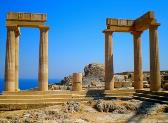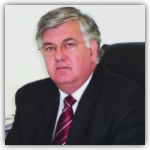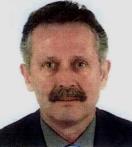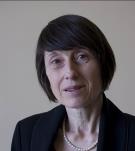|
The 10th International Multidisciplinary Modeling & Simulation Multiconference
|
|
The M&S Multiconference moving around the World and along the Years attended by Top Experts from Mediterranean, Latin & North Americas, Europe, Asia, Africa and Australia |

|
An Overview of Decision Support Systems: Theories and New Advances in Simulation, Automation, Enabling Technologies and Applications By Petros Groumpos , University of Patras
One of the challenges of accepting the “operation” of any complex system is the ability to make Decisions so the system runs efficiently and cost effectively. However making Decisions concerning complex systems often strains our cognitive capabilities. Uncertainty and related concepts such as risk and ambiguity are prominent in the research and accompanied literature on Decision-Making. This Plenary Lecture critically analyses the nature and state of Decision Support Systems (DSS) theories, research and applications. A short historical review of DSS is provided which focuses on the evolution of a number of sub-groupings of research and practice: personal decision support systems, group support systems, negotiation support systems, intelligent decision support systems, knowledge management- based DSS, executive information systems/business intelligence, and data warehousing. The scientific field of Simulation is analyzed with respect to DSS. Uncertainty is a term used in subtly different ways in a number of scientific fields, including statistics, economics, finance, physics, psychology, engineering, medicine, energy, environment, biology, sociology, philosophy, insurance, geology, military systems and Information and Communication Technologies (ICT). It applies to making decisions = predictions of future events, to physical measurements already made and/or computer generated data based on manmade “systems”. Examples from many fields are given with an emphasis on Enabling Technologies and applications in Energy, Environment, Simulation, Healthcare, Industry, Business and Maritime. The need for new DSS methodologies and tools is investigated. The DSS area has remained vital as technology has evolved and our understanding of Decision-Making process has deepened. DSS over the last twenty years has contributed both breadth and depth to DSS research. The challenge now is to make sense of it in <Decision Making> by planning it in understanding context and by searching new ways to utilize other advanced methodologies to the challenging issues in the future. A new generic method for DSS is proposed, the Decision Making Support System (DMSS). Basic components of the new generic method are provided and fully analyzed. |
|
25 - 27 September 2013 Athens, Greece
General Chairs
University of Genoa Italy
Latvia
Program Chair
University of Calabria Italy
|


|
Prof. P. Groumpos was born in 1950, in Greece. He has done his undergraduate and Doctoral Studies at the Dept of Electrical and Computer Engineering of the SUNY at Buffalo, USA. He received his Ph.D in 1979. He subsequently held a research position at Calspan Corporation in Buffalo before he moved as an Assistant Professor at Cleveland State University, Ohio in 1980 and he was promoted to Associate professor in 1985. While at Cleveland State University he established and directed for 10 years an Energy Research Center. In 1990, he returned to his motherland Greece, been elected as a full Professor at the Department of Electrical and Computer Engineering of the University of Patras. |
|
In 1992 he established the Laboratory for Automation and Robotics to which has been since then, its Director. He has been teaching undergraduate and graduate courses in the thematic areas of automatic control, signals and systems, stochastic processes, intelligent control, large and hierarchical systems, Fuzzy systems, Adaptive control, Robotics, modeling complex dynamic systems and Bioinformatics. His research interests covers the broad thematic areas of modeling and control of large complex Dynamic Systems, Intelligent control, fuzzy systems, Fuzzy Cognitive Maps, Dynamic Neural Networks, hierarchical Systems, Bioinformatics, Intelligent Manufacturing systems, Knowledge Management, Technology Transfer and Innovation. He especially has conducted funded research using advanced new techniques in many applications especially in Manufacturing, Health, Energy, Environment, Agriculture and Transportation. He has been the principal investigator and/or participated as a partner in many R&D projects been funded by the EC, the Greek Government and/or the private sector. Prof Groumpos has been the Greek Representative to IFAC for the period 1984-2004 and has served as a chairman of the LSS TC of IFAC for six (6) years. He has been the Greek representative to the EC management committees of ESPRIT, ICT, INCO and IMS. He has been the General Chairman of a number of international conferences. He has published 8 chapters in books and over 300 papers in journals and/or in International conferences. |
|
For further information please contact infoI3M2013 or Francesco Longo |
|
Hellenic views of Modelling and Simulation in Security and Defence By Lt. Gen. Leonidas Mazarakis, President AFCEA Hellenic Chapter
M&S for Operations. The significant presence of M&S in modern defence forces is evident. Among other capabilities provides a major support for commanders and their staff, by assessing training exercises, operational planning, mission readiness and corresponding rehearsals. M&S has the potential to save money and time, and to increase the Armed Forces capacity by using efficient simulation applications in support of the military commanders and their staff. Simulation Centres such as the Hellenic Armed Forces Simulation Centre in Athens provide the digital environment where the battle management skills of the military leaders could be tested. In addition to the aforementioned this capability is used by the command and control forces and systems conducting military operations. The Command and Control (C2) information, such as orders and plans could be also digitized in order to be understandable for military personnel, assisting through corresponding exercises (Computer assisted Exercises – CAX and Computer Assisted Experiments - CAE) their detailed training process and the development of operational doctrines. M&S for Emergency Response Planning and Training. M&S is capable to identify the interoperability problems between the various stakeholders and different services participating in emergency exercises such as earthquakes, floods, forest fires, chemical accidents, nuclear accidents and the transport of dangerous goods. For Greece the National infrastructure and the environmental protection is of high priority in the context of Civil Protection Organization’s responsibilities. The Hellenic Armed Forces Simulation Centre in Athens assists also the Civil Protection Organization, towards this effort, by conducting Computer assisted exercises. During these exercises the interoperability between agencies and Crisis Management Staff is assessed. M&S for Network-Enabled Capability (NEC). Expanding our efforts in a multinational environment for the aforementioned cases namely, military Operations and Civil protection response to disasters, we consider as a great challenge the interoperability between the various stakeholders. All this effort requires at least interoperable communication infrastructure, databases and M&S systems for distributed joint simulations. Greece is undertaking this challenge by participating in the “Southeastern Balkan Countries Initiative” regarding the development of a SOUTH EASTERN EUROPE EXERCISE AND TRAINING NETWORK (SEETN). Across the Allied Nations, the degree to which M&S processes and supporting technologies have been embraced is quite varied; therefore, to address over-arching interoperability leads to a Network-Enabled Capability (NEC). The extent, to which M&S can support these objectives, requires increased sharing of views and approaches as a means to shared awareness. |

|
Lieutenant General (ret.) Leonidas Mazarakis was born in Molaoi, placed at the wider region of Laconia (Prefecture), Greece, in July 1950. He Joined the Engineering Department of the Air Force Academy in 1969 and graduated in 1973 as a 2nd Lieutenant. He has served as a director of Communication and Information Engineering Branch and in important head positions at Hellenic Air Force Tactical Center (HAFTC), Hellenic Air Force Training Command (HAFTC), Hellenic Air Force General Staff (HAFGS), Hellenic National Defence General Staff (HNDGS) and in NATO. He has also served as BoD member of NAPMA. |
|
Today he is the President of the Hellenic Chapter of AFCEA (Armed Forces Communications & Electronics Association). |
|
Innovative Simulations to Overcome Global Healthcare Challenges By Vera Novak, BIDMC, Harvard Medical School
Over the last two decades science and healthcare have achieved an unprecedented success by increasing the longevity, decreasing birth death rates and diminishing or eliminating the spread of many infectious diseases. However, large inequalities in healthcare and lifespan differences persist among countries, posing a challenge to fight both the “old world” issues, such as hunger, communicable diseases as well as “lifestyle related epidemics”, such as obesity, cardiovascular diseases and diabetes. Globalization and complexity of health issues and care delivery challenges the traditional health care systems, and brings the urgent need for novel non-traditional and holistic modeling approaches to health management, which would overcome limitations, mitigate the errors and reduce the cost of health care delivery. Non-traditional approaches such as utilization of wireless sensors and artificial intelligence in decision making system may enable to healthcare to address the region-specific needs including clientele and disease pattern. A holistic modeling and simulation would allow to design and implement novel paradigms of health care and behavioral change in self-care delivery to further improve well-being and longevity around the globe. |
|
Dr. Vera Novak is Director of the Syncope and Falls in the Elderly (SAFE) Laboratory, Associate Professor of Medicine at Harvard Medical School, and Adjunct Professor of Mathematics at North Carolina State University. She graduated from Charles University Medical School and obtained her PhD form the Czech Academy of Sciences. She continued her training at University of Montreal and McGill University, Montreal CA, and Mayo Clinic Rochester MN, U.S. and served as director of Autonomic laboratory at the Ohio State University. In 2001, she founded the SAFE laboratory at the Beth Israel Deaconess Medical Center, Harvard Medical School, Boston U.S.. |
|
Her interests are to study the effects of life style disorders (obesity, diabetes, hypertension) on well-being of older adults, and to design and implement new strategies to promote successful aging using novel interventions, modeling and simulations. |

|
I3M 2013 Keynote Speech:
An Overview of Decision Support Systems: Theories and New Advances in Simulation, Automation, Enabling Technologies and Applications By Petros Groumpos, University of Patras
Hellenic views of Modelling and Simulation in Security and Defence By Lt. Gen. Leonidas Mazarakis, President AFCEA Hellenic Chapter
Innovative Simulations to Overcome Global Healthcare Challenges By Vera Novak, BIDMC, Harvard Medical School |
|
I3M 2013 Industrial Sponsors |

|
I3M 2013 Media Sponsors |








